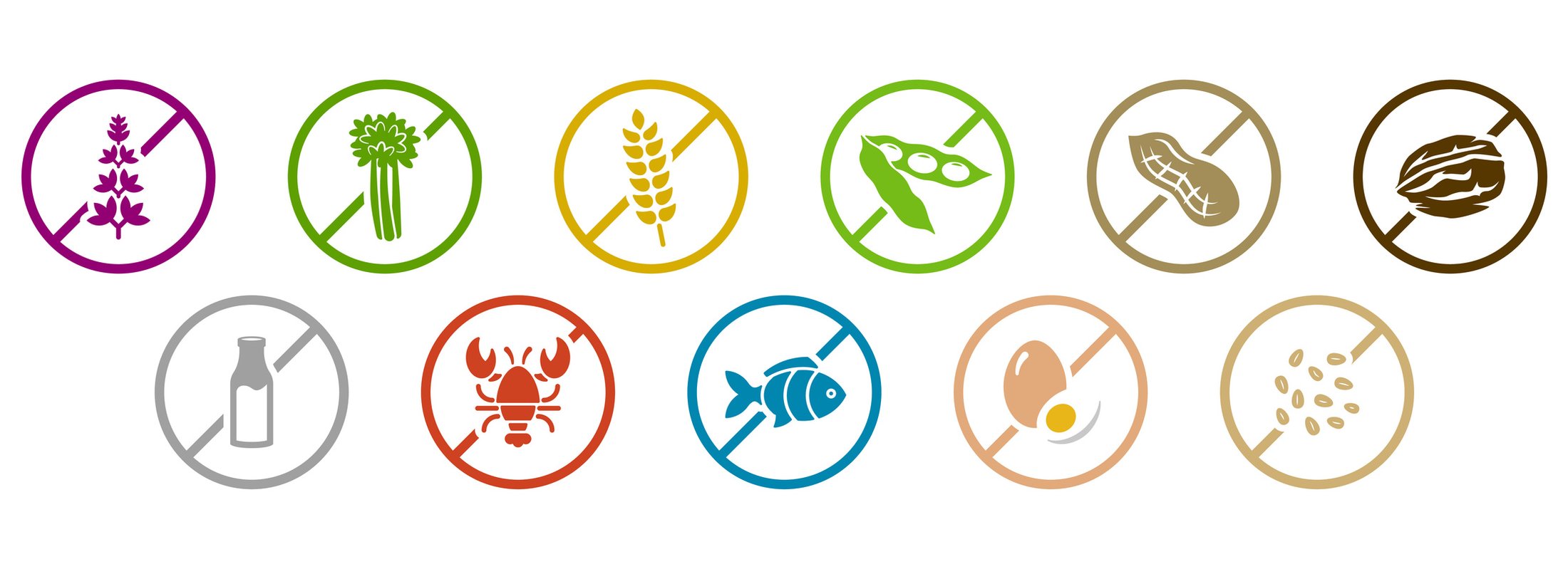Allergy and food intolerance. What is a food allergy?
Food allergy is a pathological reaction of the body to food (or rather food allergen), it is caused by an abnormal reaction of the immune system. In the pathogenesis of food allergy, Ige-class antibodies are most important-they are responsible for the participation of other cells (i.e. T-lymphocytes) in the disease process. Food allergy can occur at any age, but most often allergy occurs in infants and children due to immaturity of the intestinal barrier and increased permeability for proteins of the intestinal mucosa.
What products cause food allergy most often? These are:
- milk,
- eggs,
- wheat flour (read about hypersensitivity to wheat),
- peanuts,
- vegetables and legumes-carrots, tomatoes, soybeans, lentils,
- meat products-fish, beef, shellfish.
- Symptoms of food allergy:
- swelling or hives on the skin,
- asthma and respiratory rhinitis.
- allergic stomatitis, gastroesophageal reflux, epigastric pain and direct vomiting, diarrhoea,
- skin lesions, atopic dermatitis,
- migraines, chronic fatigue or sleep disturbances.

A food allergy can also cause a very dangerous anaphylactic shock, as it can even lead to death. Food allergy is a disease difficult to diagnose because there is no one method that would indicate an allergy to the right allergen. How to diagnose food allergy? skin spot tests with several food allergens that sensitize most, allergic blood tests, E. G. provocative food tests-gradually increasing amounts of food allergen are administered until clinical signs appear.
Treatment of food allergies consists primarily of eliminating harmful foods from the diet on the basis of the result of the study. If this does not produce the desired results, additional pharmacological treatment is used. It is also possible to treat by sensitisation, which aims to make the immune system stop responding to allergens. If the allergic reaction is very severe and may be life-threatening, appropriate medicines should be used, e.g. adrenaline in case of anaphylactic shock.
What is food intolerance?
Food intolerance is an allergy to a certain food ingredient that is tolerated by most people. Food intolerances (as well as allergies) may also be associated with immune-mediated IgG reactions. Such cases are often referred to as delayed food allergies because symptoms appear after approx. several-or tens of hours after consumption of the intolerant ingredient. IgG-dependent intolerance is manifested by recurring symptoms that always appear after eating intolerant food.
Where do food intolerances come from?
It is considered that the immediate cause of the development of IgG-dependent food intolerances is a leak in the intestinal barrier. How does that come about? This is due to an abnormal reaction of the immune system to food proteins. Intestinal wall thickening can also be caused by food poisoning, antibiotics or immune disorders. The cleft of the natural intestinal barrier causes allergens to enter the bloodstream-when they come into contact with them, the immune system begins to defend itself and produces IgG antibodies. A high concentration of IgG antibodies in the body begins to cause inflammation and the body begins to appear discomfort.
Let us also keep in mind the fact that food intolerances can also have a source in our genes, that is, at the base of the body. Depending on the gene and the disease, intolerance can manifest itself in early childhood or only in adulthood.
 What diseases indicate IgG-dependent food intolerance:
What diseases indicate IgG-dependent food intolerance:
- flatulence and gases,
- abdominal pain,
- migraines,
- infections,
- rheumatic pain,
- skin lesions (eczema, pruritus, redness, dryness).
Food intolerance is less dangerous to the body compared to food allergy, but untreated it can also cause various dangerous diseases, especially in the gastrointestinal tract. Therefore, reliable tests for food intolerances should be performed. Intolerance and food allergy-comparison. The causes of intolerance and allergies are very complex-they may overlap several or the reason may be only one. Stands out among them:
- genetic factors – some people have a genetic predisposition to a lower tolerance of certain ingredients (this applies to some extent to allergies, but mainly to congenital intolerance),
- abnormal infant diet-feeding infants too little with their mother’s milk and introducing new ingredients into the infant’s diet too early – the gastrointestinal tract of infants is not adapted to high dietary diversity,
- too strict hygiene and frequent intake of antibiotics from early childhood-this prevents the development of immunity, a decrease in immunity can be manifested by food intolerance,
- environmental pollution-can cause poisoning with heavy metals (aluminum, mercury, lead), e.g. from exhaust fumes or cigarette smoke can lead to the development of intolerance (most often gluten and dairy products),
- adding to food artificial flavors, preservatives.
